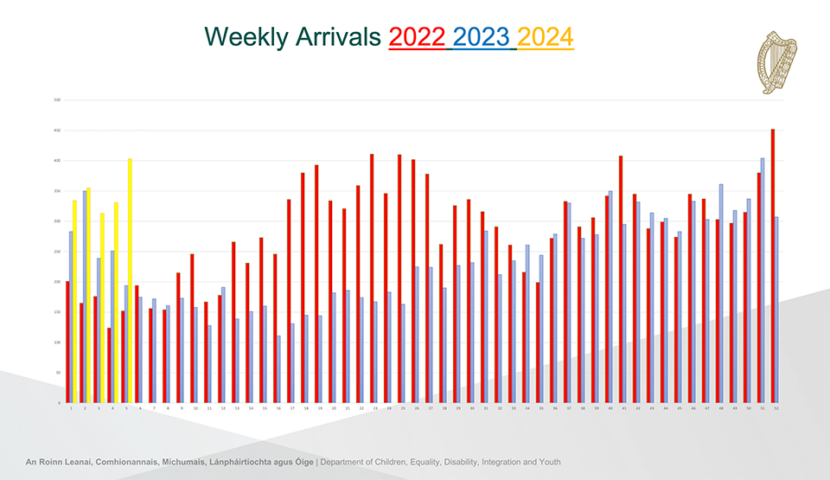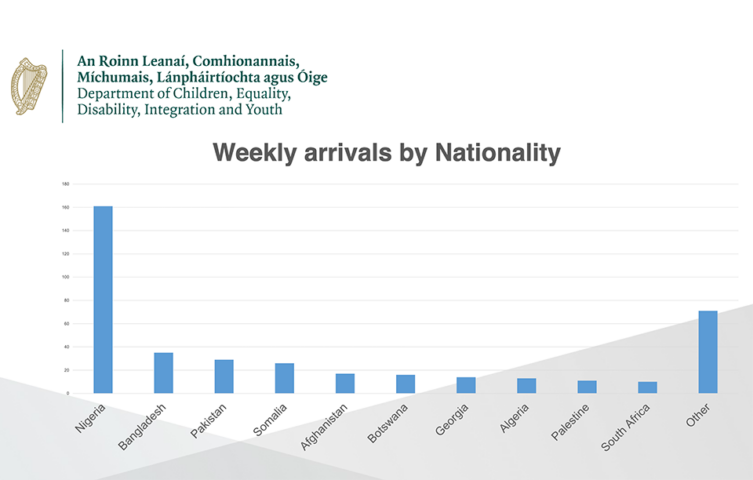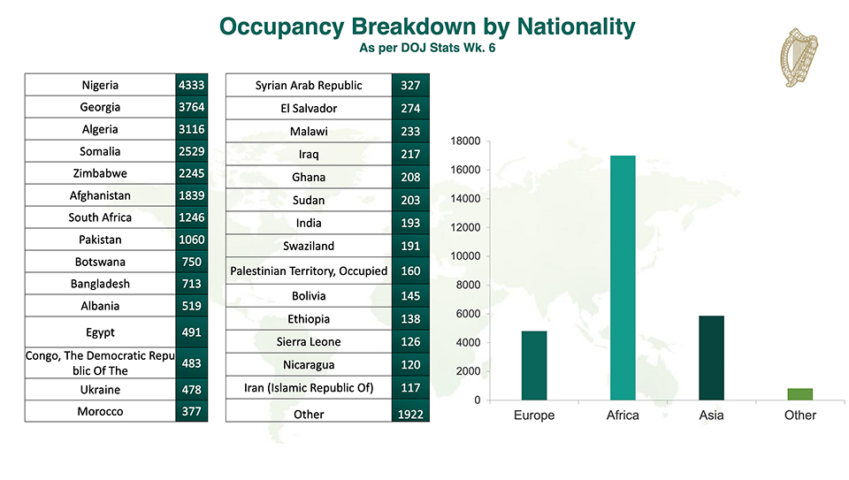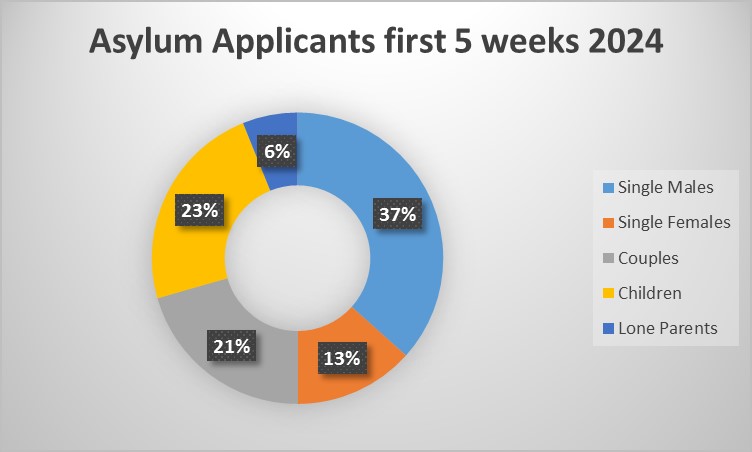The number of asylum applicants coming to Ireland has surged significantly in the first five weeks of 2024, with January arrivals setting a new record in that period for the past 20 years, the Department of Justice is reported to have said. Nigerian applicants are now outpacing other nationalities in significant numbers.
Although the government has talked a tough game on illegal immigration in recent months, most likely in response to opinion polls which have repeatedly shown that voters believe the country has taken in too many refugees, new numbers from International Protections Application Services show a huge increase, rather than a drop, in arrivals.
A total of 1,736 migrants claiming asylum arrived in the first 5 weeks of 2024 – with 1,333 applications made through IPAS in January, and a further 403 in the first week in February to the 4th of that month.
In the same period in 2023, there were 1,314 asylum applications – meaning that 2024 has seen a 32% increase in comparison.
As the graph below shows, the asylum arrivals in 2024 to date (in yellow) far outstrip the numbers which came in that period for 2022 which was described as a record year.
In 2022, a surge of applications came after the first quarter of the year, while in 2023, large numbers came earlier, followed by a drop-off in applicants in the Spring and Summer but then a significant additional surge in the second half of the year.
In total, in 2022, 13,651 asylum applications were made, setting a record for arrivals. In 2022, a similar figure, 13,277 was recorded.
Now, officials in the Department of Justice said that number of arrivals in the first month of 2024 is the highest monthly figure since 2001 and 2002, and compares to 1,427 people arriving in December of last year.

If the trend over the first 5 weeks continued, we could expect to see some 17,000 migrants claiming asylum arriving in Ireland in 2024, although it is impossible to accurately predict those numbers.
Nigerian applicants are now a large majority of those arriving in the weeks for which data is provided – with 40% of all asylum applicants in the last week (to February 4th) coming from that country.

Another 15% came from Bangladesh and Pakistan, while almost a third came from Botswana, Georgia, Algeria, South Africa and other countries combined.
The only countries featured in the data where war is actually ongoing were Somalia, Afghanistan and Palestine – which combined were roughly 12% of the total asylum arrivals.
The majority of those in IPAS accommodation are now Nigerians, with Georgians and Algerians also remaining in the top three positions.

A breakdown of the weekly arrivals for the first five weeks of 2024 showed almost 4 in 10 were single males, while 13% were single females and almost a quarter were children.

The figures do not include the huge numbers of Ukrainians who continue to arrive in need of accommodation, healthcare, and other services. The Department of Justice were told last Friday that the number of Ukrainians coming to Ireland “had dropped but has now surged again”.
The surge in numbers is coming at a time when rents are reaching record high – almost 30 per cent of new tenancy rents across Ireland were more than €2,000 per month in the third quarter of last year, according to figures released today – and the housing crisis continues, with young people emigrating in droves.
As for healthcare, along with the never-ending crisis in hospitals, the Independent yesterday reported that “more than two out of three GPs in rural Ireland are not taking on new patients and some have waiting times of up to two weeks for an appointment.”
Where all of these people now arriving will be housed and provided for is really anyone’s guess at this stage – but the impact on Irish people who are already struggling with housing and cost of living difficulties can no longer be ignored.
The government’s promises of tough measures to tackle the immigration crisis are not showing much impact in the first five weeks of this year – the opposite, in fact, given the surge in numbers. That also cannot be ignored.